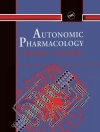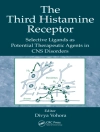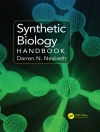This book presents a systematic application of recent advances in artificial intelligence (AI) to the problem of asset management. While natural language processing and text mining techniques, such as semantic representation, sentiment analysis, entity extraction, commonsense reasoning, and fact checking have been evolving for decades, finance theories have not yet fully considered and adapted to these ideas.
In this unique, readable volume, the authors discuss integrating textual knowledge and market sentiment step-by-step, offering readers new insights into the most popular portfolio optimization theories: the Markowitz model and the Black-Litterman model. The authors also provide valuable visions of how AI technology-based infrastructures could cut the cost of and automate wealth management procedures.
This inspiring book is a must-read for researchers and bankers interested in cutting-edge AI applications in finance.
Table of Content
Chapter 1. Introduction.- Chapter 2.- Revisiting the Literature.- Chapter 3. Theoretical Underpinnings on Text Mining.- Chapter 4. Computational Semantics for Asset Correlations.- Chapter 5. Sentiment Analysis for View Modeling.- Chapter 6. Storage and Update of Domain Knowledge.- Chapter 7. Dialog Systems and Robo-advisory.- Chapter 8. Concluding Remarks.- Appendix.- Index.
About the author
Erik Cambria is the Founder of Sentic Net, a Singapore-based company offering B2B sentiment analysis services, and an Associate Professor at NTU, where he also holds the appointment of Provost Chair in Computer Science and Engineering. Prior to joining NTU, he worked at Microsoft Research Asia and HP Labs India and earned his Ph D through a joint programme between the University of Stirling and MIT Media Lab. Erik is recipient of many awards, e.g., the 2018 AI’s 10 to Watch and the 2019 IEEE Outstanding Early Career award, and is often featured in the news, e.g., Forbes. He is Associate Editor of several journals, e.g., NEUCOM, INFFUS, KBS, IEEE CIM and IEEE Intelligent Systems (where he manages the Department of Affective Computing and Sentiment Analysis), and is involved in many international conferences as PC member, program chair, and speaker.












